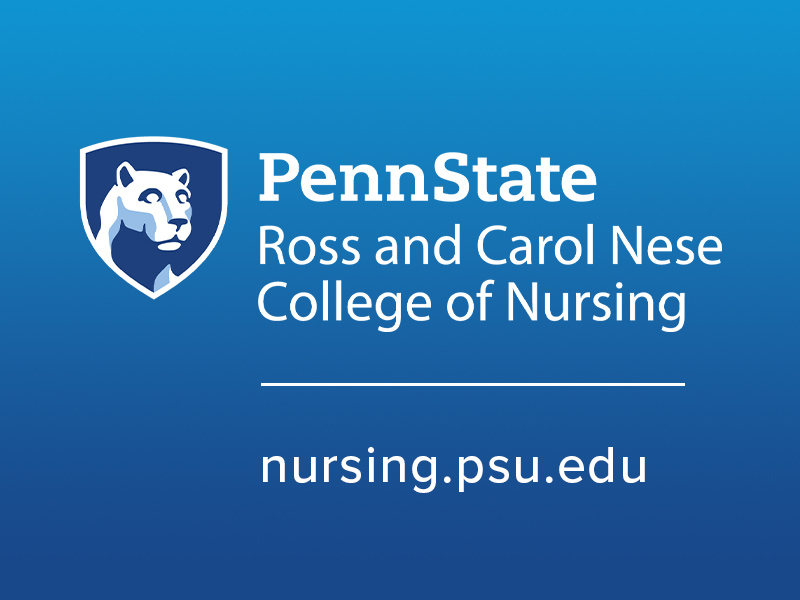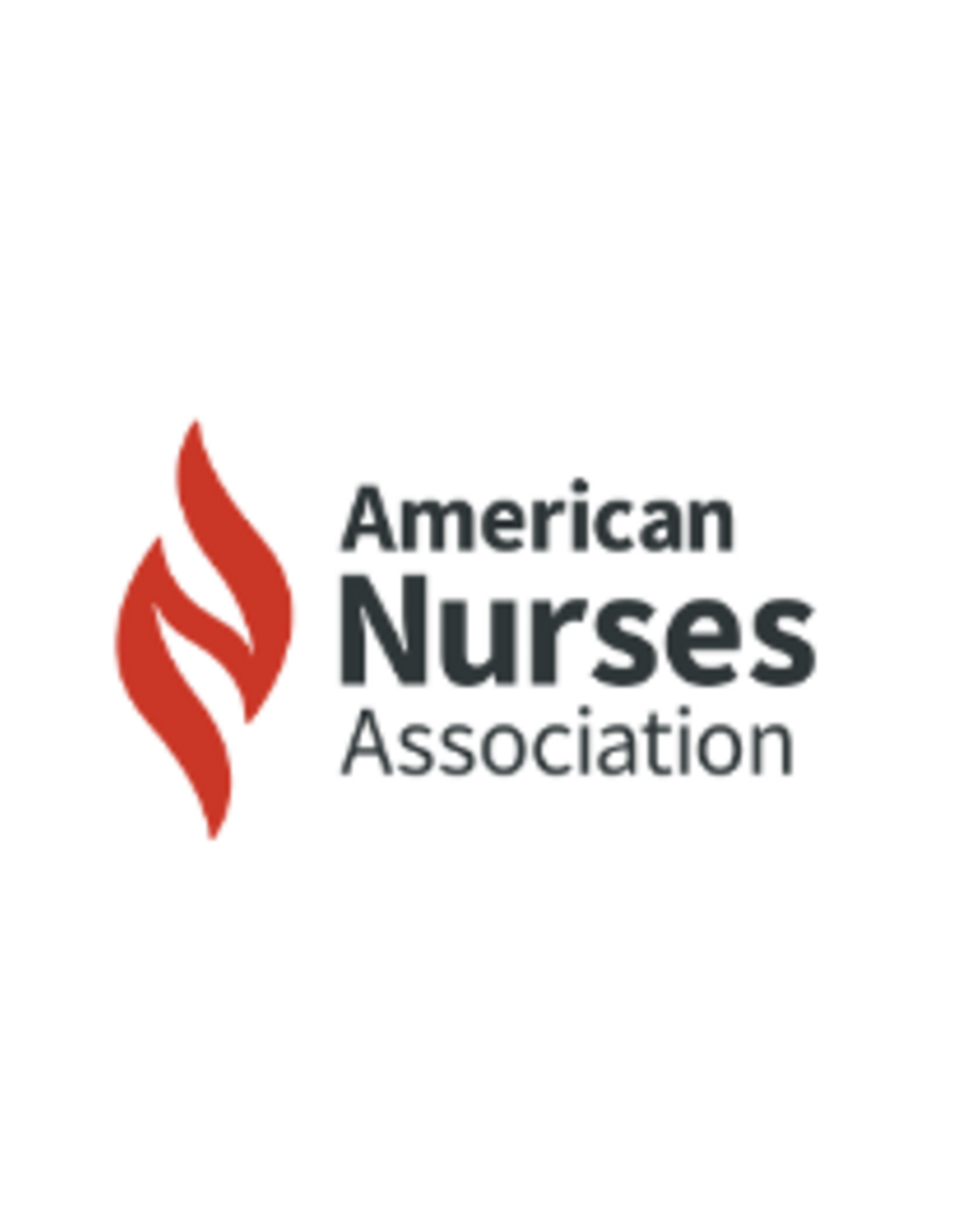PROPOSED
2026 Health Policy and Legislation (HP&L) Position Statement
The goal of West Virginia Nurses Association (WVNA) is to support enactment and implementation of policy that will benefit the health and welfare of all citizens. The WVNA strives to provide information, advocacy, representation and protection for the state's professional nurses. As part of the American Nurses Association (ANA), the organization establishes policies and goals for the profession that form the basis for nursing's contribution to the advancement of health care policy.
I. PROFESSIONAL ISSUES
WVNA supports regulatory legislation that:
-
Assures the West Virginia RN Board (WVRNB) retains authority and autonomy to regulate the nursing profession with a culture that is fair, just, collaborative and adherent to fiduciary responsibilities (W. Va. Code §30-7-3, §30-7-4);
-
Supports the implementation of the *National Academy of Medicine's* report *The Future of Nursing 2020--2030: Charting a Path to Achieve Health Equity* (National Academy of Medicine, 2021);
-
Recognizes the full scope of practice and autonomy of nurses as established by professional licensure and delineated by professional organizations (ANA Nursing: Scope and Standards of Practice, 4th ed., 2021; NCSBN model act/rules);
-
Promotes APRNs (certified registered nurse anesthetists, certified nurse anesthetists, certified nurse practitioners, certified nurse-midwives, and clinical nurse specialists) as licensed independent practitioners, promotes full compensation for APRNs, prevents professional liability carriers from limiting coverage or restricting the full APRN scope of practice, prevents restraint of trade through collaborative requirements, and does not endorse the current version of the APRN Compact (National Council of State Boards of Nursing, 2020, AANP Position Opposing the Revised APRN Compact (rev. 2023);
-
Supports APRNs in the autonomous management of opioid use disorder, including medically assisted treatments and therapies (SAMHSA: Removal of X-Waiver (2023); DEA/MATE Act training notice (2023);
-
Improves health care access through modernizing statutory language, eliminating restrictions in nursing practice and prescriptive authority (American Association of Nurse Practitioners, 2020, See AANP state practice environment resources and policy brief. AANP State Practice Environment map (2025 PDF); AANP Issues at a Glance: Full Practice Authority (rev. Aug 2024);
-
Promotes the use of appropriate, scientifically correct, and inclusive terminology in proposed legislation and health policy (CDC Health Equity Guiding Principles for Inclusive Communication (2021 PDF); CDC Preventing Chronic Disease article describing the principles (2023); AMA--AAMC Advancing Health Equity Language Guide (2021 PDF); and
-
Promotes full practice authority for APRNs within their educational standards of practice (NAM Future of Nursing 2020--2030; AANP State Practice Environment (2025 PDF).
WVNA supports workplace initiatives that:
-
Uphold individual nurses' right to make moral-ethical decisions (American Nurses Association, Code of Ethics for Nurses-Provision 6, 2025);
-
Support safe staffing initiatives, acknowledge patient acuity, and maximize standard quality outcomes determined by nurses;
-
Recognize the RN as a coordinator for patient care;
-
Provide flexible work schedules that lessen the risk of fatigue-related errors;
-
Prohibit mandatory overtime;
-
Compensate nurses using market benchmarking;
-
Improves patient and nurse safety with education, supplied devices, and personal equipment to protect the patient and nurse from adverse events;
-
Standardize policies and procedures, equipment and medication delivery systems, including but not limited to information technology, to provide seamless care across the health care landscape;
-
Support unrestricted use of titles appropriate to educational degrees and credentials; and
-
Disseminate education to each nurse regarding prevention, treatment, and recovery for nurses with substance use or mental health disorders.
II. HEALTH CARE DELIVERY
WVNA supports a health care delivery system that:
-
Encourages a culture of health through education and public awareness;
-
Supports Healthy People 2030 objectives that include: health conditions, health behaviors, populations, settings and systems, social determinants of health (U.S. Department of Health and Human Services, Office of Disease Prevention and Health Promotion, 2020; Healthy People 2030);
-
Supports patient safety though adequate staffing patterns with RN supervision and appropriate delegation of licensed and unlicensed assistive nursing personnel;
-
Assures compliance with WV Code: "The legislature finds that regulation should be imposed on an occupation or profession only when necessary for the protection of public health and safety" (WV Code, Chapter 30-1A-1);
-
Promotes nursing practice to the full extent of education and competency;
-
Modernizes state regulations to eliminate barriers to health care and those that have anticompetitive effects with no contribution to the health and safety of the public (National Academy of Medicine, 2021; Federal Trade Commission, 2012);
-
Provides interprofessional person-centered care, employs evidence-based practice, applies quality improvement, and utilizes informatics (National Academy of Medicine, 2021);
-
Facilitates antibiotic stewardship by all who administer, receive, or prescribe antibiotics. (Centers for Disease Control and Prevention, 2021);
-
Encourages the expansion of nurse-led models of care;
-
Improves timely access to care for patients in all settings; and
-
Adheres to the Artificial Intelligence Code of Conduct for Health and Medicine to ensure the following: advancing humanity, ensuring equity, engaging impacted individuals, improving workforce well-being, monitoring performance, and innovating and learning (National Academy of Medicine, 2025).
WVNA supports public policies that:
-
Promote a commitment to the principle that all persons are entitled to affordable, readily accessible, high-quality health services (AHRQ, 2008; ACA, 2010);
-
Promote access to equitable and comprehensive health care for all West Virginians;
-
Promote reimbursement parity for all health services, including but not limited to medications, holistic care, reproductive services, and behavioral health services (ACA, 2010);
-
Assure quality supportive and palliative end-of-life care is accessible to all people, including effective symptom management and psychosocial and spiritual support;
-
Maintain West Virginia immunization standards as outlined by WV16-3-4;
-
Recommend ongoing immunization guideline modifications for individuals across the lifespan as outlined by the U.S. Centers for Disease Control and Prevention (CDC, 2025);
-
Encourage West Virginians to maintain active, healthy, and independent lifestyles;
-
Promote access to quality in-home long term or intermediate care when desired and needed;
-
Identify, report, and prevent abuse and neglect of vulnerable populations, including physical, mental, and financial abuse, and provide victim support (WV State Auditor's Office, 2012, WHO 2025);
-
Eradicate prescription drug abuse and eliminate inappropriate prescribing and dispensing of controlled substances in West Virginia (WV Opiate Reduction Act 2018, WV Office of the Attorney General, 2021);
-
Eliminate the import, manufacturing, and distribution of illegal drugs in West Virginia (DEA, 2018);
-
Support the safe, regulated, and legal prescribing of therapeutic marijuana and complementary therapies by APRNs and other licensed medical providers (ANA, 2016);
-
Recognize the importance of patient confidentiality, given the impact of media and technology on professional practice (WVNA, ANA, 2012);
-
Eradicate HIV/AIDS through harm reduction strategies, increased screening, and expanded treatment and prevention including the use of PrEP and PEP in primary care settings for persons at high risk (HIV.gov, 2019);
-
Protect consumers from surprise billing for healthcare services and provide transparency for cost of care and prescription drug pricing;
-
Include best practices in harm reduction and rehabilitation services for persons living with substance use disorder; and
-
Achieve statewide broadband coverage for improved access to healthcare.
WVNA supports school health initiatives that:
-
Support a minimum of one certified school nurse in every WV public school building to promote health and wellness; manage students with acute and chronic diseases; provide drug prevention education and referrals; administer stock naloxone and epinephrine; and provide mental health services, support, and referrals to ensure an educated and healthy workforce for economic growth and development in WV (American Academy of Pediatrics Policy Statement, 2016);
-
Support the need for safe administration of insulin at school for students with diabetes -- only a certified school nurse, registered nurse, licensed practical nurse, parent/guardian, trained parent designee (not employed by the board of education), and/or student may legally administer insulin in the school setting (WVASN and WVCOSN Position Papers, 2014);
-
Promote the coordination and linkage of students to a health home, including oral health, through the certified school nurse;
-
Promote the role of the certified school nurse in the enrollment of children and families in comprehensive insurance programs which include oral health;
-
Recognize the certified school nurse as the coordinator of health care intervention with the authority to make appropriate health care task delegations and assignments within the educational setting and the nurse's scope and ability;
-
Promote collaboration between the certified school nurse and school-based clinics for health promotion and disease management. (A certified school nurse covers all children enrolled in public school; the school-based clinic provides care only to established patients);
-
Recognize the certified school nurse as the professional who ensures quality health care instruction for pre-K through 12th grade students, including comprehensive, age-appropriate human sexuality education (WVDE School Nurse Needs Assessment, 2010);
-
Support certified school nurses' pay parity within educational funding formula for teachers;
-
Promote the community school concept, which coordinates programs and services to support healthy lifestyles for students, staff, parents, and the community which each school serves (Communities in Schools; Coalition for Community Schools; CDC Whole School, Whole Community, Whole Child, 2024); and
-
Recognize the long-term health impacts of childhood trauma and link students to trauma- informed care and programs to build and support resilience.
III. PATIENT RIGHTS
WVNA supports patients' rights to:
-
Health care as a basic human right;
-
Safe, error-free health care environments;
-
Transparent information about nurse staffing patterns and quality outcome benchmarks at health facilities (CMS Rules, 2014);
-
Receive health care provided by nursing personnel consistent with their level of acuity (add AI reference);
-
Privacy and confidentiality;
-
Shared decision making about personal health, without coercion;
-
Patient education delivered to meet individual literacy and learning needs; and
-
Designate APRNs as their preferred provider for all healthcare services in all settings across the lifespan.
IV. NURSING RETENTION AND RECRUITMENT
WVNA supports strategies for retention and recruitment, including:
-
Promoting a safe and professional work environment with shared nurse governance;
-
Funding for undergraduate and graduate education for nurses, educational opportunities for faculty, and nursing workforce redevelopment programs (ANA, 2023);
-
Improving incentives and pay parity for nurse educators and preceptors who provide clinical supervision to the next generation of clinicians (RWJF, 2017);
-
Leveraging policy to ensure all nurses may practice to the full extent of their education, training, and certification (namely, to remove collaborative requirements, restrictive prescribing formularies, and restrictive signatory authority);
-
Reimbursement parity for APRN services;
-
Programs for nurses in recovery from substance use disorder, including confidential and compassionate peer monitoring and counseling services; and
-
Elevating the role of the nurse related to quality of care, patient outcomes, and organizational and financial stability.
V. SOCIAL ISSUES
WVNA supports the following:
-
Education focusing on social justice issues;
-
Legislation focused on prevention of violence and bullying, particularly the protection of vulnerable populations in all venues;
-
Initiatives to eradicate human trafficking;
-
Initiatives to screen for, educate about, and reduce public health risks, including but not limited to unclean air and water, harmful additives and toxins, drug and alcohol impairment, distracted driving, sexually transmitted infections, HIV/AIDs, sports injuries, gun violence, and ATV/motorcycle helmet use;
-
Access to programs that identify risks for and treat post-concussive head injuries from sports and other causes (CDC, 2015);
-
Access to trauma-informed care, behavioral health services, and programs addressing post-traumatic stress disorder (PTSD);
-
Public disclosure of and education about environmental health risks in homes, work, school, and other public settings (ANA, 2010);
-
Adequate funding and public policy to provide smoking and vaping prevention, cessation, and educational programs to eliminate tobacco use and environmental exposure;
-
Education regarding the health benefits of breastfeeding and chest feeding (ABM, 2024; ACNM, 2022);
-
Ongoing recognition and support of all veterans;
-
Programs developed to identify and treat the high incidence of post-traumatic stress disorder (PTSD) and post-concussive head injuries in the veteran population (e.g., traumatic brain injury) (AANP, 2012);
-
Programs developed to identify and treat the high incidents of military sexual trauma (MST) and suicide in the military population;
-
Access to behavioral health services for all veterans and families with supportive opportunities for the highest quality of independent living (AANP, 2012);
-
Addressing the high incidence of suicide and substance use disorder, and limited availability and accessibility of quality behavioral health services;
-
Engaging community members and health professionals in disaster preparedness efforts (WVREDI, 2015);
-
Programs that address social determinants of health and enhance health equity; including economic stability, health care access and quality, social and community context, education access and quality, and neighborhood and built environment (HP 2030);
-
The fundamental principle of respect for the inherent dignity, worth, unique attributes, and human rights of all individuals (ANA, 2015);
-
Increase visibility and contribution of nurses in local, state, national, and international leadership roles; and
-
Full staffing of sexual assault nurse examiners (SANEs) at hospitals and/or community agencies across the state (U.S. Dept. of Justice, 2024).













